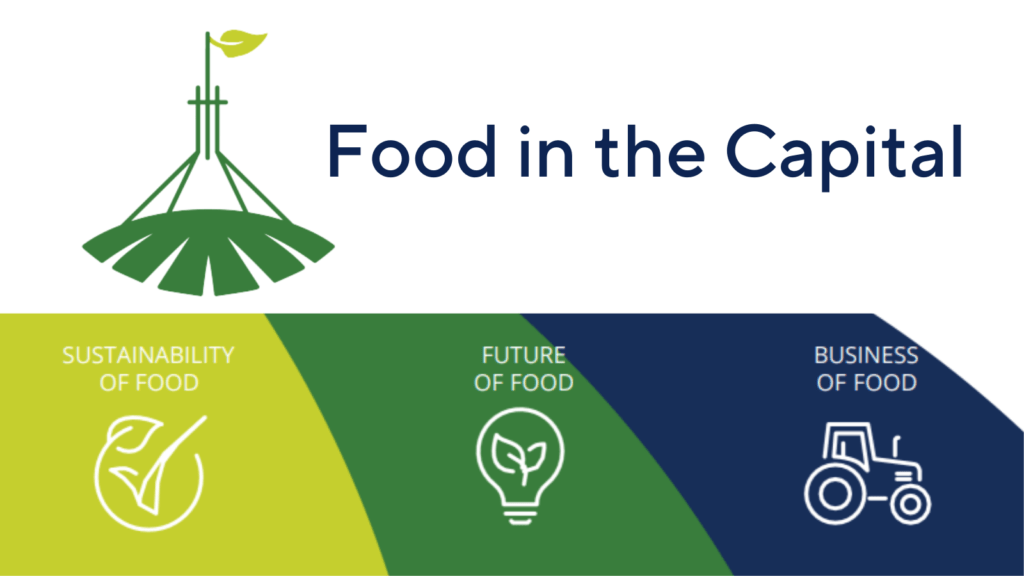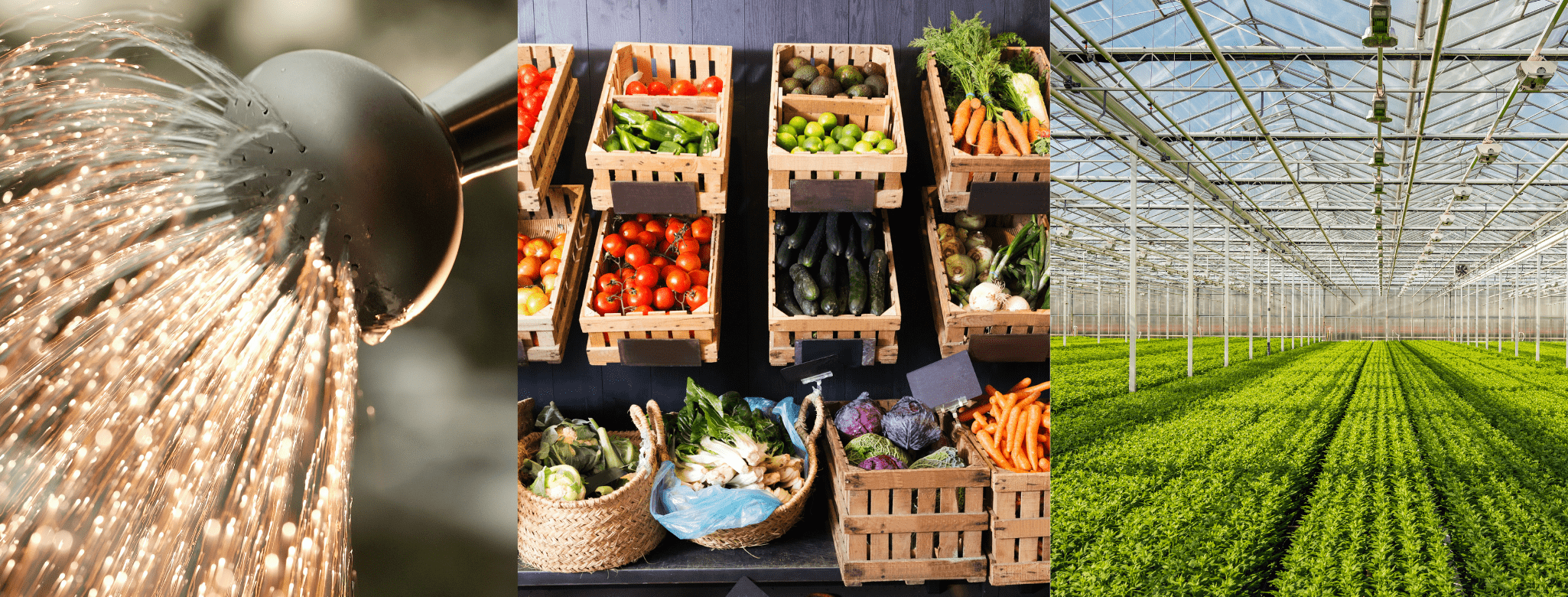CEAT Marketing and Communications Officer Sarah Biggerstaff recounts her experience at the 2021 Food in the Capital Conference below.
On Tuesday 18 May I attended the Food in the Capital conference at the Realm Hotel in Canberra, along with other representatives from CEAT. The day was jam-packed with panels, keynote speakers, and talks from people at the forefront of food production and its journey from paddock to plate from across the region and Australia. One of the things that struck me most about the event was the sheer number of people with a passion for growing Canberra and the region’s food production ecosystem, and driving sustainable, ethical, and healthy food consumption.
It is heartening to know that there is a strong and active movement toward creating a healthy and sustainable food ecosystem in the region, though many obstacles were also presented throughout the day. For instance, we rely quite heavily on food that is imported to the region either from within Australia or internationally, despite the fact that the region has the capacity to produce a significant proportion of our food needs. Further, cities are concentrated centres for food waste. However, we have the opportunity to create a more circular food economy. The University of Canberra’s Professor Ross Thompson observed “Imagine if we used vertical farming to grow food; this would reduce water wastage and pollution”. Solutions like this are being explored and developed both by entrepreneurs and in research institutions across the world and Australia, including within the ACT. As Minister Rebecca Vassarotti said, “We need to capitalise on the ACT’s resources [in research] like the CSIRO and local universities” to drive best practice and future-proof the ACT’s food ecosystem.
In his introductory speech, Ross MacDiarmid, Chair of Regional Development Australia ACT posed the question “How often does the average consumer think about where their food comes from?” Though many of the talks suggested that the answer was ‘not enough’, one speaker stated that globally we are more interested in where our food comes from and food security than ever before. This is encouraging, but as with many movements growing global awareness, more needs to be done to spread the message and promote positive action.

This leads me to highlight another motif that emerged repeatedly throughout the day, which was the need for more education – education about how to reduce food waste, how to protect essential ecological resources likes bees and water supplies, how to create nourishing, sustainable food consumption practices, and how consumers can purchase more ethical, environmentally friendly products. The need for education about these issues and ways to deliver it was outlined in a number of different ways throughout the event. One initiative that stood out to me was the talk on the Stephanie Alexander Kitchen Garden program, which is designed to educate school children about food sustainability and healthy eating in an integrated and engaging way. Another was from Jessica Stewart of the Riverview Group, who talked about the role community design had to play in integrating food and ecological awareness into daily life. She talked specifically about the development of the Ginninderry community, and how its design integrated edible food corridors into the communal spaces.
I could write an entire book were I to go into detail about all the excellent panels and talks and the important issues raised throughout the day. So, I shall simply say that other sessions, which for me personally, were event highlights included talks from Julie Armstrong of ACT for Bees, Skye Blackburn, who has created a range of edible products using insects under the Circle Harvest brand, Dr Rachel Carey’s keynote speech on the need to preserve food production zones on the fringes of our cities, and Her Excellency Ms Francesca Tardioloi, Ambassador of Italy’s reflection on the social rituals associated with food and the pleasant, warm feelings associated with them.
I’ll close off my summary of the event with a quote from Skye Blackburn, which neatly captures a key message from the day: “We don’t need everyone to be eating sustainably all the time, just to make more small, sustainable choices, as these ultimately make a big difference”. I look forward to seeing the progress we as a region make towards becoming a more sustainable food ecosystem in the coming year, and to the next instalment of Food in the Capital.
